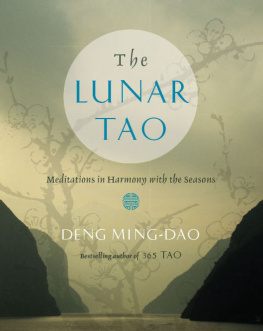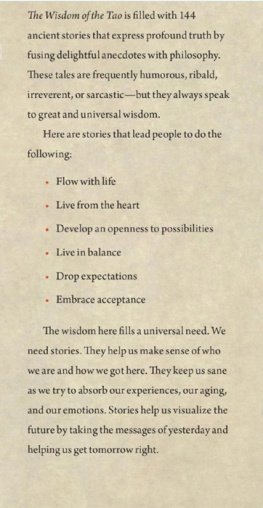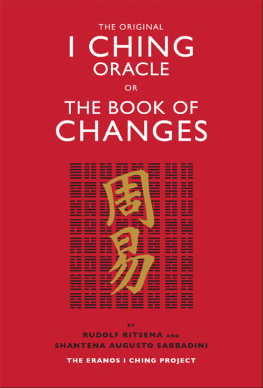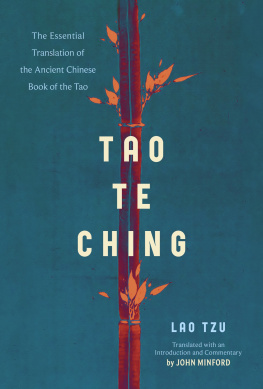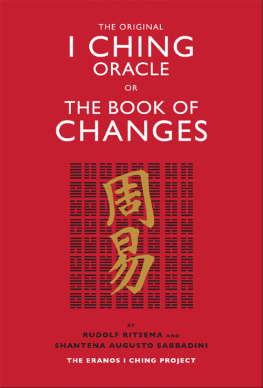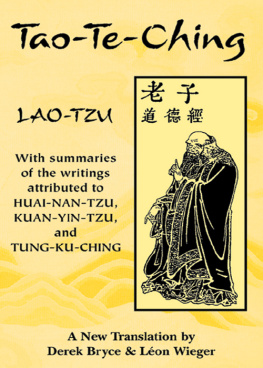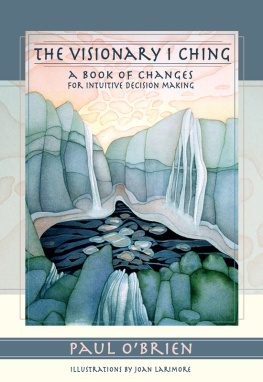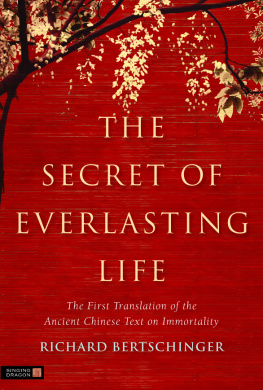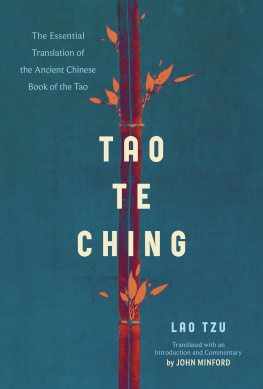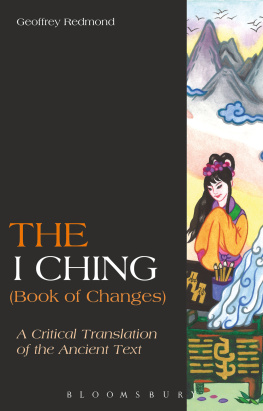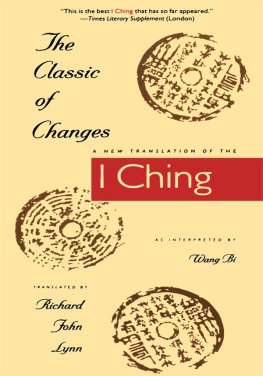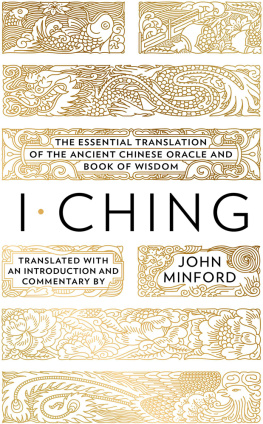O ne of the recurring phrases in the Changes is beneficial to see the great person. In my case, Morton Marcus was the great person who provided encouragement, guidance, and tutoring. He is a loyal and compassionate man, a devoted husband and father, and a man who has earned his views through hard experience as a poet, Air Force veteran, college professor, union leader, film critic, radio host, and promoter of the arts. He has made a serious study of poetry from around the world, with particular emphasis on classical Chinese poetry. As a college student, he told Professor Yi-Pao Mei that he wanted to study the Chinese poets. The professor began the traditional way, by having him copy poems repeatedlystroke by stroke with brush and ink.
I met Mort just as I was looking for the courage to write this book. I had been a guest speaker in a college class on Chinese history and poetry that he was coteaching. He gave me a several books of his poetry, and I recognized one of them, The Santa Cruz Mountain Poems, which I had read in a library more than a quarter-century before. As we talked informally, I told him about my planned book, saying off-handedly that I might write it once I had retired. I thought I was being modest with such a grandiose idea. After all, Confucius supposedly did not consider himself mature enough to study the Changes until he was past fifty.
You cannot wait. Not if youre a creative person, he told me. Being a father is fine. Being a businessman is fine. But if you are a writer, you write because you must. You write because it keeps you sane. Waiting to retire before you write this book is tooConfucian.
It was a remark as abrupt as that of any Chinese teacher, but it also signaled support. Mort read many drafts as the book took form. I could not have continued without his tutelage and, in many cases, his hand pulling me back from precipices as I groped for the right approach. Sometimes he would telephone me and say, Stop writing like this! or I hate those rhymes! Unlike the traditional Chinese teacher, though, he was also encouraging, and he could demonstrate what he was suggesting by improvising lines.
Our friendship is about the magic of poetry, and how poems can live in a person for years after just a few readings. We have pulled our families into our friendship, and together we have indulged our love of food. It is therefore with the greatest respect and affection that I dedicate this book to Mort.
This book also benefited from discussions with Mark Salzwedel, who was my editor for a number of previous books. Before there was even a manuscript, we discussed my ideas, and he instantly understood what I was attempting. I am fortunate that he lent his critiques to this project.
I must also extend my appreciation to Pearl Weng Liang Huang, who helped me translate several passages (especially the lengthy extracts in the appendixes) and who discussed words and phrases particularly difficult to understand. Our discussions affirmed how challenging translation is, and how important it is to look beyond meanings to understanding.
My thanks also go to Eric Brandt, my editor, who took a great deal of time with the work and who helped to shape the book with great sensitivity.
Other readers to whom I am most grateful are Moss Roberts, Betty Gee, Alison Jade Ong, Robert Dato, and Ralph Kilmann. I thank them all for their comments and suggestions.
Calling this book an act of madness, folly, and vanity would be to elevate it too much. Calling it stupid would be too thin a description. This is not a scholarly book; I am not qualified. Neither is it the work of a master; I have no lofty authority. Since the Changes model virtue is humility, let me simply acknowledge this: What I search for is the concern of neither the scholar nor the master. It is a personal search for direct communion with the Changes itself. If the trail leads others to that voice, this folly will have been worthwhile.
T he search for wisdom to shape our lives often takes us through the worlds great books: the Bible, the Quran, the Talmud, the Buddhist and Hindu scriptures, and many others. We can also delve into Greek, Roman, Norse, Mesopotamian, Native American, and Asian myths, explore philosophers from every culture, and look deeply into literature. Sooner or later, our search will lead to China. There we have such important books as the Daodejing, the Zhuangzi, and the Analects of Confucius.
The wisdom of China flows in three main streams: Buddhism, Confucianism, and Taoism. Usually, these schools hold themselves distinct, but there is one remarkable book that predates them all, has been accepted by them all, and yet stands apart from them in its own right. That book is the I Ching.
I, pronounced yi, means change. Ching, pronounced jing, means canon. For simplicity and clarity, we will refer to the I Ching simply as the Changes. The Changes is a compilation of texts and commentaries from as early as the 12th century B.C.E. It has been used as a source of wisdom and as a book of divination. It is mainly built around sixty-four hexagrams (groups of six lines). Each hexagram has a Statement, attributed to the Zhou dynasty founder King Wen; comments about each of the six lines, attributed to the Duke of Zhou (son of King Wen); and an Image, attributed to Confucius. Later editions carry commentaries by other scholars.
How did this book exist with the three great streams of Chinese thought? The Buddhist version of the Changes was clearly meant to graft Buddhism to the indigenous Chinese wisdom of the Changes. (Buddhism originated in India). Confucianism placed the Changes in a central position for all imperial governments from the Han dynasty (established 206 B.C.E. ) to the Qing dynasty (ended 1911 C.E. ) by making it one of the Five Classics (or Canons) of Confucianism. These books formed the basis of orthodox Chinese thought for over two thousand years. Finally, since the Changes central tenet is that all circumstances result from the interaction of natures impersonal forces rather than divine intervention, Taoism found an ancient tradition that blended seamlessly with its own. In turn, various editors added Taoist influences back into the Changes. This strong link between Taoism and the Changes is so important that anyone who wants to understand Tao must also study the Changes.


